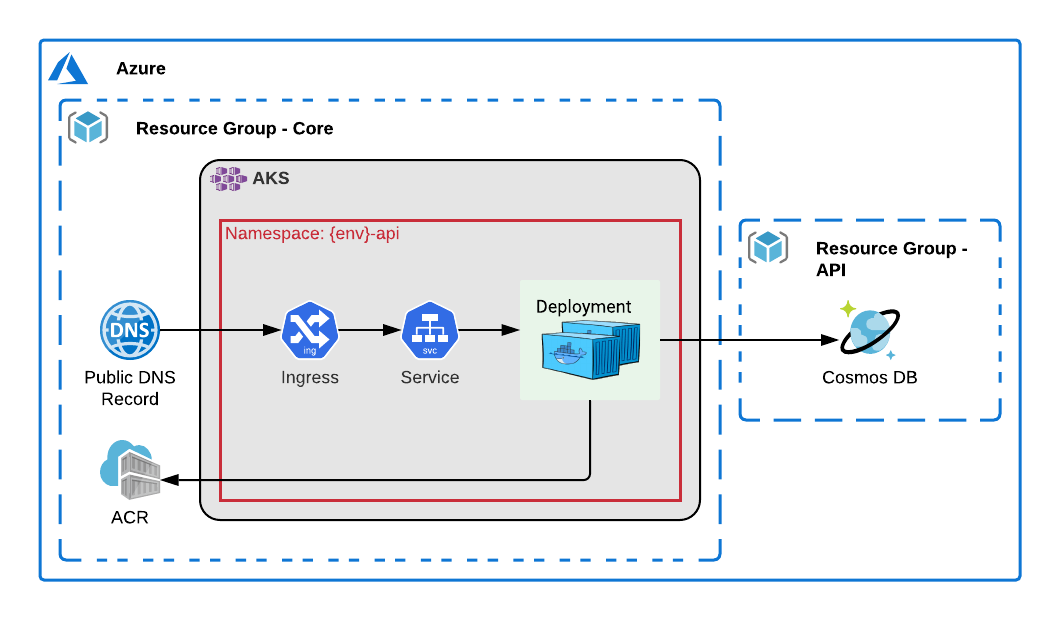.NET - Azure Infrastructure
Overview
This page present the high level design of the reference implementation of the .NET Ensono Stacks REST API with CQRS.
This page assumes that the core infrastructure has already been provisioned. Instructions and additional information on the core infrastructure
Both the diagram and resource list below are for a single environment.
Diagram

Resource List
| Resource | Description |
|---|---|
| Resource Group - Core * | Used to logically group core infrastructure |
| AKS * | Azure Kubernetes Service |
| Public DNS Record | DNS record pointing Ingress (via application gateway***** and internal load balancer*****) |
| ACR * | Azure Container Registry |
Namespace: {env}-api | Kubernetes namespace for the environment |
| Ingress | Kubernetes Ingress to handle routing to Service |
| Service | Kubernetes Service to handle routing to Deployment Pods |
| Deployment | Kubernetes Deployment for managing Pods |
| Resource Group - API | Used to logically group API specific infrastructure |
| Cosmos DB | Azure managed NoSQL database |
* Resource is created by the core infrastructure deployment.
Deploying
All infrastructure is deployed using Terraform that is included with the generated code.
Pipelines
The following pipelines are currently supported for automating the deployment: